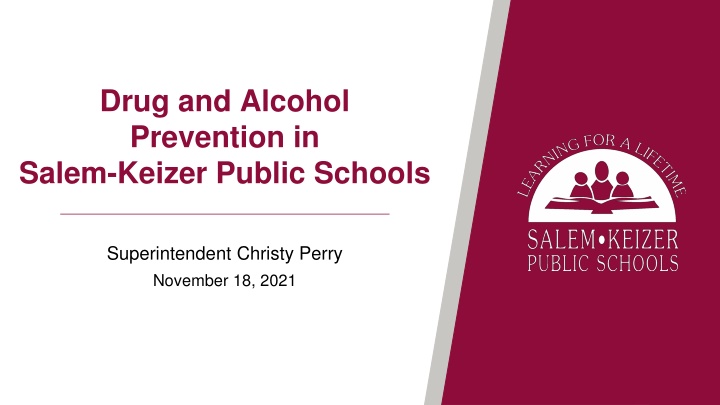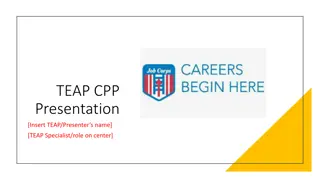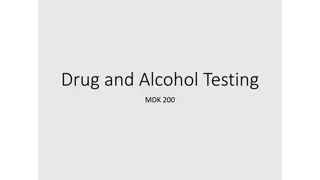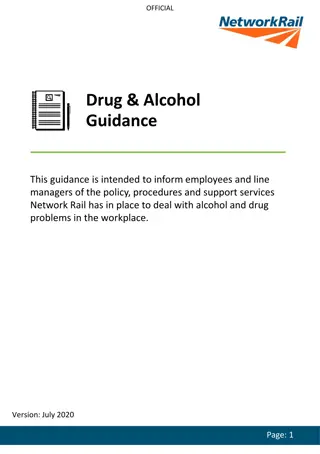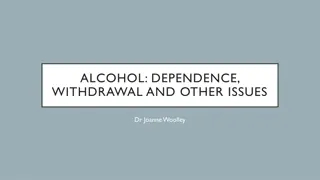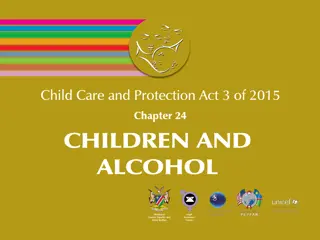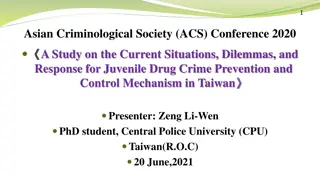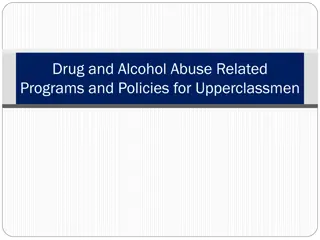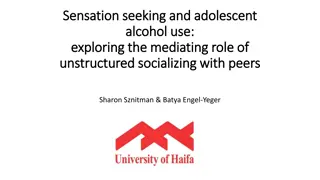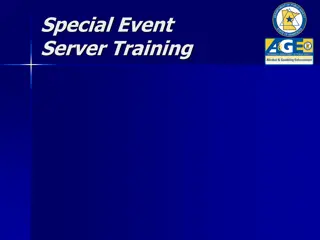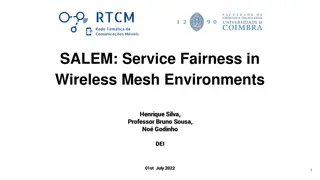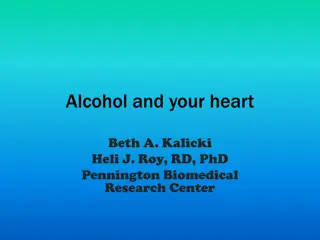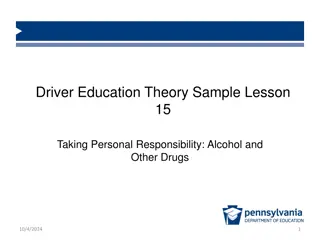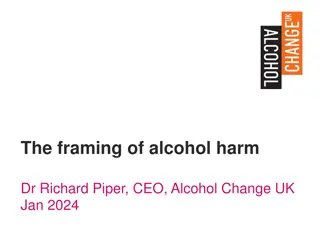Comprehensive Drug and Alcohol Prevention Strategies in Salem-Keizer Public Schools
The presentation by Superintendent Christy Perry on drug and alcohol prevention in Salem-Keizer Public Schools highlighted the district's commitment to educating and supporting students in making healthy choices. State education laws emphasize evidence-based prevention strategies, skill development, and staff training. Oregon Health Education Standards outline key concepts and skills taught at different grade levels, focusing on knowledge of substance use effects and decision-making skills. The district follows a restorative approach to student discipline for drug and alcohol abuse. Referral, intervention, and support systems are in place to address issues effectively.
Uploaded on Sep 30, 2024 | 3 Views
Download Presentation

Please find below an Image/Link to download the presentation.
The content on the website is provided AS IS for your information and personal use only. It may not be sold, licensed, or shared on other websites without obtaining consent from the author.If you encounter any issues during the download, it is possible that the publisher has removed the file from their server.
You are allowed to download the files provided on this website for personal or commercial use, subject to the condition that they are used lawfully. All files are the property of their respective owners.
The content on the website is provided AS IS for your information and personal use only. It may not be sold, licensed, or shared on other websites without obtaining consent from the author.
E N D
Presentation Transcript
Drug and Alcohol Prevention in Salem-Keizer Public Schools Superintendent Christy Perry November 18, 2021
District Vision ...graduating prepared for a successful life includes understanding how to stay healthy and safe. Purpose of today s presentation - provide information about the education and supports provided through the school district to students across salem and keizer
State Education Laws related to drug/alcohol prevention 581-22-2045: Prevention Education in Drugs and Alcohol: K-12 Comprehensive Health Education plan of instruction Emphasize prevention strategies Evidence-based and reflecting current research Aligned to state education content standards Reflect the effects, consequences (laws), and available resources for support Reinforce skill development - peer pressure, decision making, positive health/wellness Drug- and tobacco- free school policies Indicate school consequences for drug/alcohol use (OAR 581-021-0050, 0055) Provide staff development on drug/alcohol prevention (this is an area we could use help on)
Oregon Health Education Standards Grades K-8, 9, 11 Elementary level: Healthy living, making healthy choices and decisions, asking for help Secondary Level (beginning at 6th grade): specific knowledge and skills related to alcohol/drug prevention and decision making. Knowledge: Key concepts of alcohol, tobacco and other drugs including tolerance, addiction, recovery, peer pressure, short and long term health impacts. Impacts/effects of drug/alcohol/tobacco use (health, laws, consequences) Stages of addiction Reducing the risk: social, environmental Skills: Understand and analyze cultural influences, personal values, and social pressure: Risk associated with behaviors Refusal skills and decision-making processes Protective factors, healthy options, goal setting, reach out for support
Systems for referral, intervention, and support State Law pertaining to student discipline (581-021-0055): Students shall be liable to discipline, suspension, or expulsion for misconduct: Unlawful use of drugs, narcotics, or alcoholic beverages SKPS value/belief statement about restorative/educational practices related to student drug/alcohol abuse -- though we are allowed, we take a restorative approach to drug/alcohol use in student discipline. We never out-of-school suspend for alcohol/drug use. Diversion is used to reduce discipline consequences. If concern is raised by staff through referral processes or due to discipline (confirmed use of drug/alcohol/tobacco on school property), students are referred to diversion.
Systems for referral, intervention, and support Third Millennium Online, self-paced curriculum (alcohol, drugs, tobacco) Used as an intervention Student accesses the support either during disciplinary process (referred after first offense; used to reduce number of in-school suspension days) or after identification of need (counselor, trusted adult, parent, team process) Bridgeway Recovery Services Small group counseling services (alcohol, drugs, tobacco) Used as intervention Student accesses the support either during disciplinary process (referred after second offense; used to reduce number of in-suspension days) or after identification of need (counselor, trusted adult, parent, team process) Bridgeway comes to every Secondary school in the district; connect to students who have agreed to participate and set up evaluation/counseling sessions.
Health Survey Data Grade 6 Grade 8 Grade 11 9.8% 18.6% 41.2%* Alcohol Use 0 0.7% 2.6% Cigarette Use 0.7% 2.4% 9.2% e-Cigarette/Vaping Use 0.3% 7.2% 28.5% Marijuana Use NA 2.8% 2.9% Prescription Drug Use *Of grade 11 students who indicated use of alcohol, 37.5% indicate binge drinking within the last 30 days.
Diversion Before Discipline Difference between diversion and discipline Diversion applies education, intervention, and support in response to a behavior. Includes referrals to Third Millennium or Bridgeway. Discipline applies a punitive measure in response to a behavior. Includes referral to law enforcement, suspension, or expulsion.
Documented Incidents For the 2019-20 school year: 625 incidents for possession or distribution To date for the 2020-21 school year: 164 incidents for possession or distribution
Documented Diversions During the 2019-20 School Year: 114 high school referrals to Bridgeway 50 middle level referrals to Bridgeway
